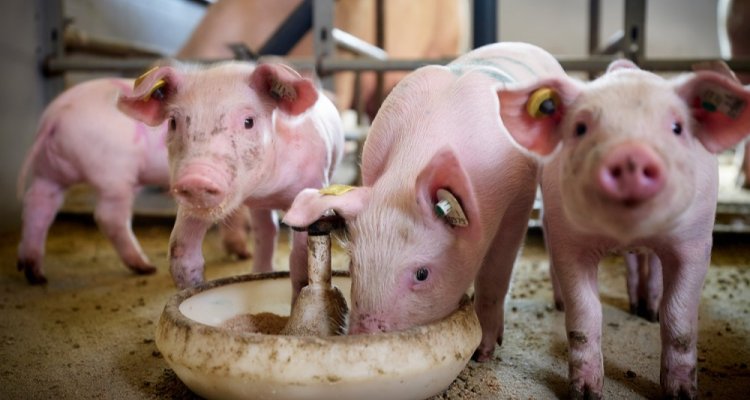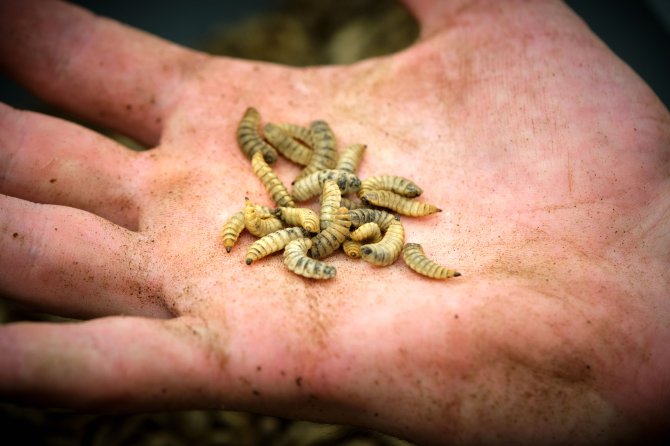
News
Black soldier fly larvae can replace soybean meal in growing pigs
Black soldier fly larvae (BSF) can replace soybean meal (SBM) as protein source in the diet for growing pigs. That was discovered by a multidisciplinary research team of Wageningen University and Research (WUR) and Leiden University, the Netherlands.
There is increasing pressure against the use of SBM as a source of dietary protein source in animal feed, as cultivating SBM requires cropland that could also be used to grow food crops. BSF is potentially a more suitable and sustainable protein source, as it can be grown on waste and residual streams from food production.
Trials
The researchers studied two groups of growing pigs. One group was fed a diet with regular soybean meal as a protein source. The other group was fed a diet with BSF larvae as the protein source.
The researchers then obtained data on the microbiota of the small intestine and metabolites in the blood of the pigs. “This is called the FeedOmics approach”, lead author Dr. Soumya Kanti Kar says, “and it helps to ascertain the impact of diet in both local i.e. intestinal and systemic i.e. blood level, simultaneously. FeedOmics thereby provides a detailed and thorough snapshot of the response to a Black Soldier Fly based diet in pigs.” Dr. Kar is a Gut Performance & Animal Health scientist at Wageningen Livestock Research.
The results suggested that BSF supports the growth of gut microbial taxa that are either indicators of a healthy gut or are recognized as beneficial microbes that have positive effects on pig health. In short, growing pigs that are fed BSF seem to be just as healthy (or even healthier) than their counterparts with a regular, SBM based diet.

Screening functional ingredients and beyond
“These discoveries will help livestock stakeholders in their search for sustainable alternative protein sources. The FeedOmics approach used in this study can be used to answer scientific questions related to discovering the functionality of feed ingredients as measured by animal response” said Kar. “The results of this project are promising. The timing of the publication of our findings couldn’t be better, as the Member States of European Union have decided to allow the feeding of insect-derived proteins to poultry and pigs. This European Commission decision will undoubtedly provide a significant boost to the burgeoning industry, which is expected to grow tenfold to over $4.1 billion by 2025.”